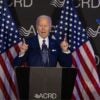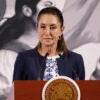Stunning new developments in the New Black Panther Party (NBPP) voter-intimidation scandal indicate that high-level Justice Department officials have been misleading the public and Congress. Indeed, they may also have committed perjury before the U.S. Commission on Civil Rights.
Judicial Watch recently filed a Freedom of Information Act (FOIA) lawsuit requesting documents related to the case, and today it released a log produced by the Justice Department of e-mail communications and other documents that Justice is withholding from disclosure on purported privilege grounds.
The Daily Signal depends on the support of readers like you. Donate now
The log details numerous discussions and legal deliberations between the Civil Rights Division and political appointees in the highest reaches of the Justice Department, including former deputy attorney general David Ogden and Associate Attorney General Thomas Perrelli (the number-two and number-three officials under Eric Holder). Other documents show that Eric Holder was also briefed on how to respond to Hill inquiries.
These documents directly contradict statements from the Office of Public Affairs, whose spokesman, Tracy Schmaler, has repeatedly claimed that the decision to dismiss the case was made entirely by career lawyers in the Civil Rights Division. The political appointee at the head of the Division, Assistant Attorney General Thomas Perez, made the same claim in testimony under oath before the Civil Rights Commission on May 14, an assertion that the Justice Department’s own log now shows to be highly suspect, if not flat wrong.
Contrary to the claims of Schmaler and Perez, the log shows extensive communications about the NBPP case between the top lawyers in the Civil Rights Division — especially Steven Rosenbaum, the acting deputy assistant attorney general for civil rights in charge of voting rights — and the Office of the Associate Attorney General, including Steve Hirsch, the deputy associate attorney general who serves as Perrelli’s right-hand man.
For those unfamiliar with Hirsch, he was one of the Democratic party’s main redistricting lawyers and was deeply embedded in the Obama presidential campaign before joining the Justice Department in February 2009. Indeed, Slate magazine has called him a “DC election lawyer who represents a lot of Democrats.”
The log reveals that on April 30, 2009, the day before the Justice Department was supposed to file its default judgment, and the same day that the trial lawyers in the case were suddenly told to seek a two-week delay instead, Rosenbaum and Hirsh sent each other eight e-mails about the lawsuit. The description of these emails states that they are privileged because they are “predecisional and contain[] deliberations between the CRT Front Office and his supervisor in OASG.” In other words, there were legal “deliberations” going on between Rosenbaum and his supervisor in the Office of the Associate Attorney General, Steve Hirsch. The log also shows a flurry of emails between Hirsch and Perrelli on April 30.
Just before the May 15 deadline, when the trial team was ordered to dismiss virtually the entire case, there are once again numerous emails (13 in May, to be exact) between Hirsch and Associate Attorney General Perrelli. Some of the subject lines were “Where are we on the Black Panther case” and “New Black Panther Party — your questions.” The privilege log description says the e-mails concern updates on the NBPP litigation and “not[e] ODAG’s current thoughts on the case.” ODAG is Justice-speak for the Office of the Deputy Attorney General — held then by David Ogden, who apparently had “thoughts” about how this case should be handled. The log further shows that all of the revised pleadings that were going to be filed to dismiss the case were sent to Hirsch for his (among others?) review.
Even the recommendation of the trial team to proceed with a full default judgment against all four defendants, sent by the Voting Section to Rosenbaum and other supervisors in the Civil Rights Division on May 8 (before they were ordered to dismiss the case), was immediately sent by Rosenbaum to Hirsch in the associate attorney general’s office. There are so many e-mails between Rosenbaum and Hirsch that it appears Hirsch was being kept apprised of every single development in the case. Indeed, it is no stretch to say that Hirsch appears to have been effectively functioning as the head of the Civil Rights Division for purposes of the NBPP litigation.
There are numerous unanswered questions in the log, particularly since there are undated items listed. These include “Talking Points” written by Karen Stevens, a former Clinton-era political appointee in the Civil Right Division, who burrowed into a career slot just before the Clintons left office. She was one of the main “witnesses” DOJ Inspector General Glenn Fine used in his biased and inaccurate report on the supposed “politicized” hiring during the Bush administration. According to the log’s content description, these talking points were prepared for Attorney General Holder, “identify selected aspects of the Department’s handling of the NBPP litigation, and serve to brief the AG on how he may prepare for potential inquiries during upcoming Hill testimony.”
Did these talking points mislead Holder and tell him there was no involvement by the political appointees who report to him directly (i.e., Ogden and Perrelli)? Or did it advise Holder to deliberately dissemble on the issue?
The privilege log released by Judicial Watch strongly suggests that political appointees were intimately involved in the decision-making that ultimately resulted in the outrageous gutting of the voter-intimidation case against the NBPP. After all, that is the basis of the asserted privilege: that these e-mails were about lawsuit “deliberations.” It is also clear from this log that the statements and testimony coming from senior Justice Department officials are misleading, if not outright lies, and have misrepresented what actually happened at Justice. It also shows an extraordinary degree of political involvement in a case at the district court level that I never saw when I was at Justice, despite all of the false claims to the contrary made by critics of the Bush administration.
The NBBP case has been virtually ignored by the mainstream media for almost two years. It has been dismissed as “small potatoes” by some who do not seem to understand its implications, particularly its underscoring of the bias of this administration against the race-neutral enforcement of our voting-rights laws. But this latest development shows that the political leadership of this Justice Department has been much more involved in the case that it has been willing to admit (and in fact has denied under oath). So far, these leaders have faced virtually no repercussions for their misbehavior. Let’s hope that soon will change.































